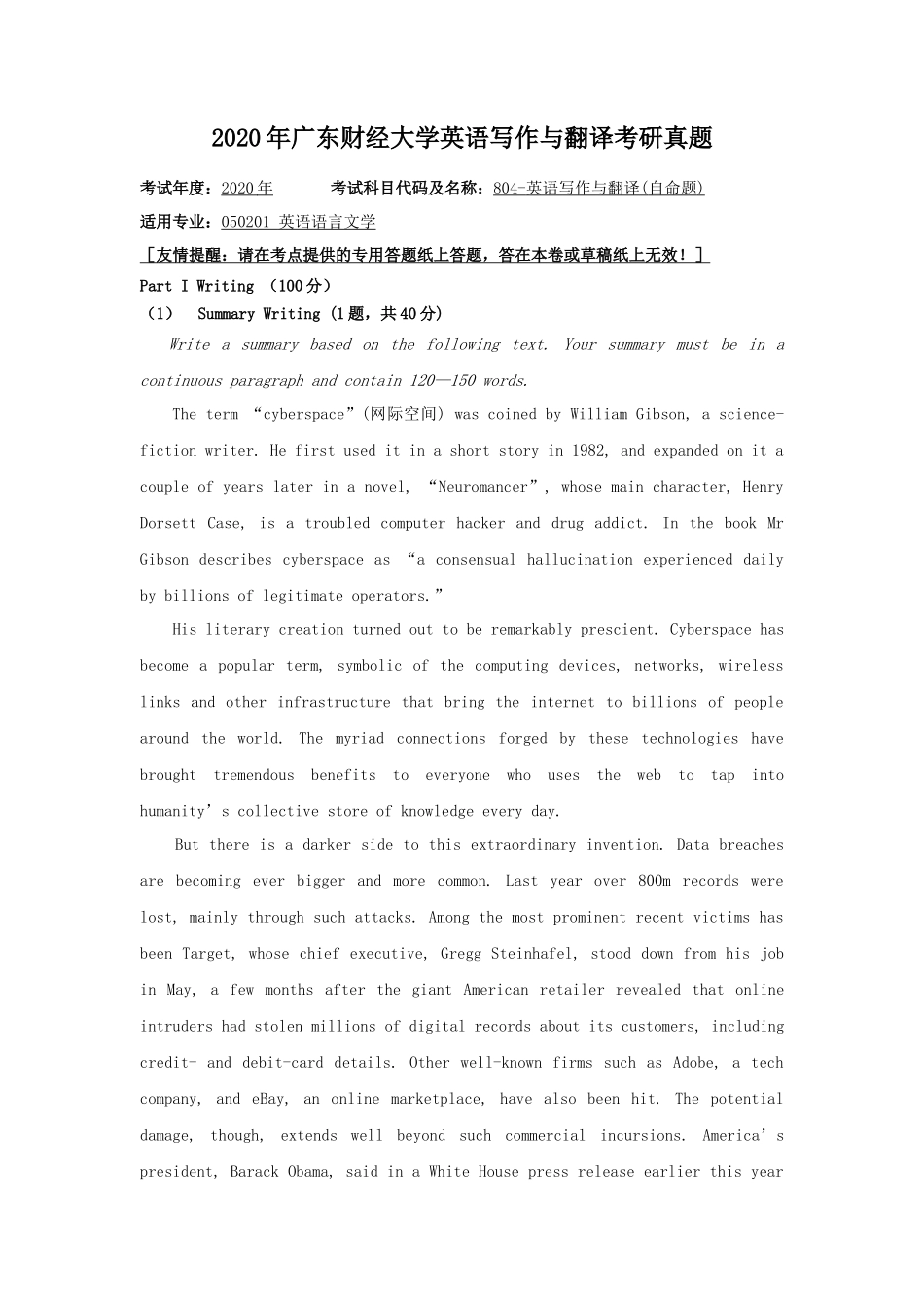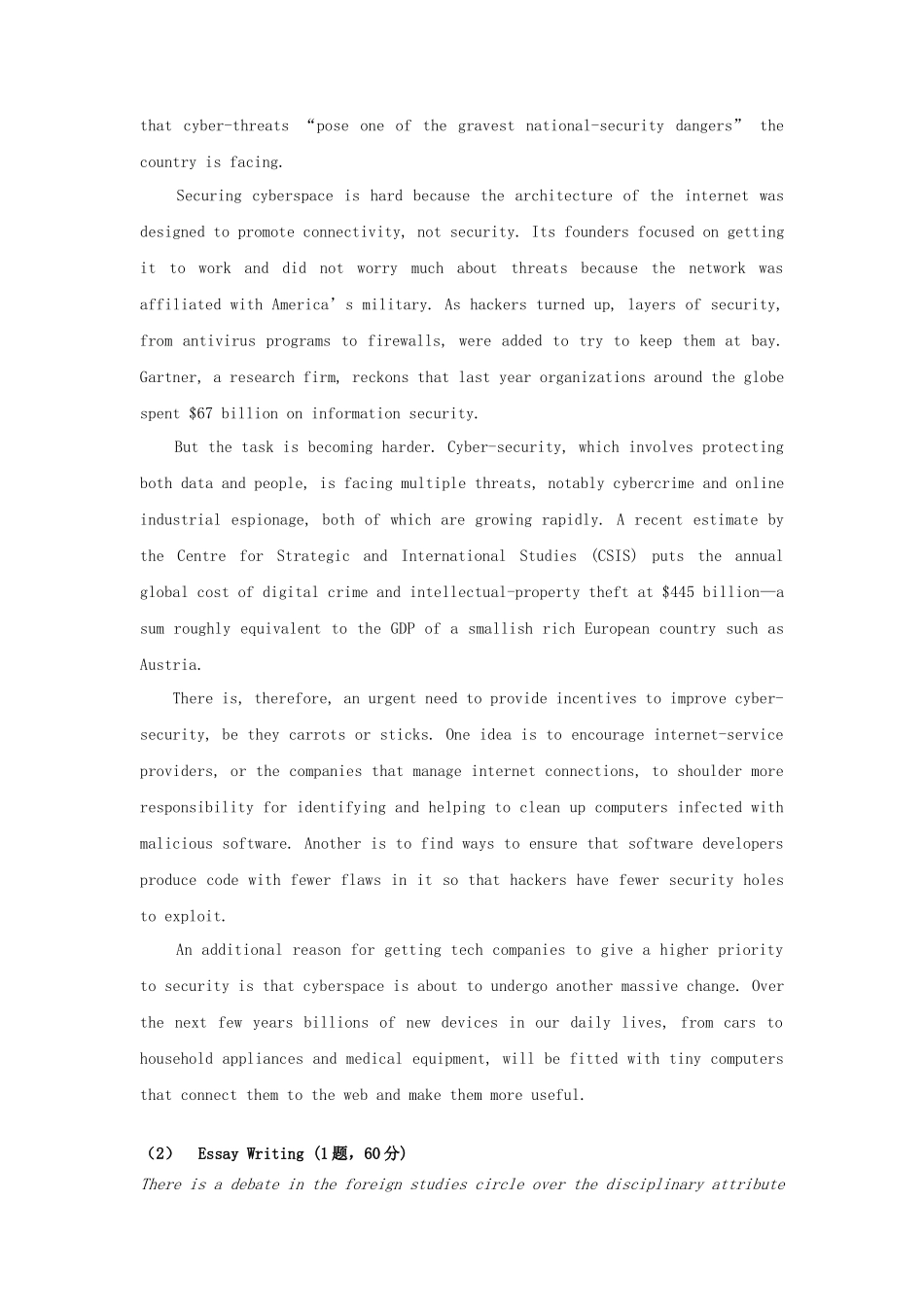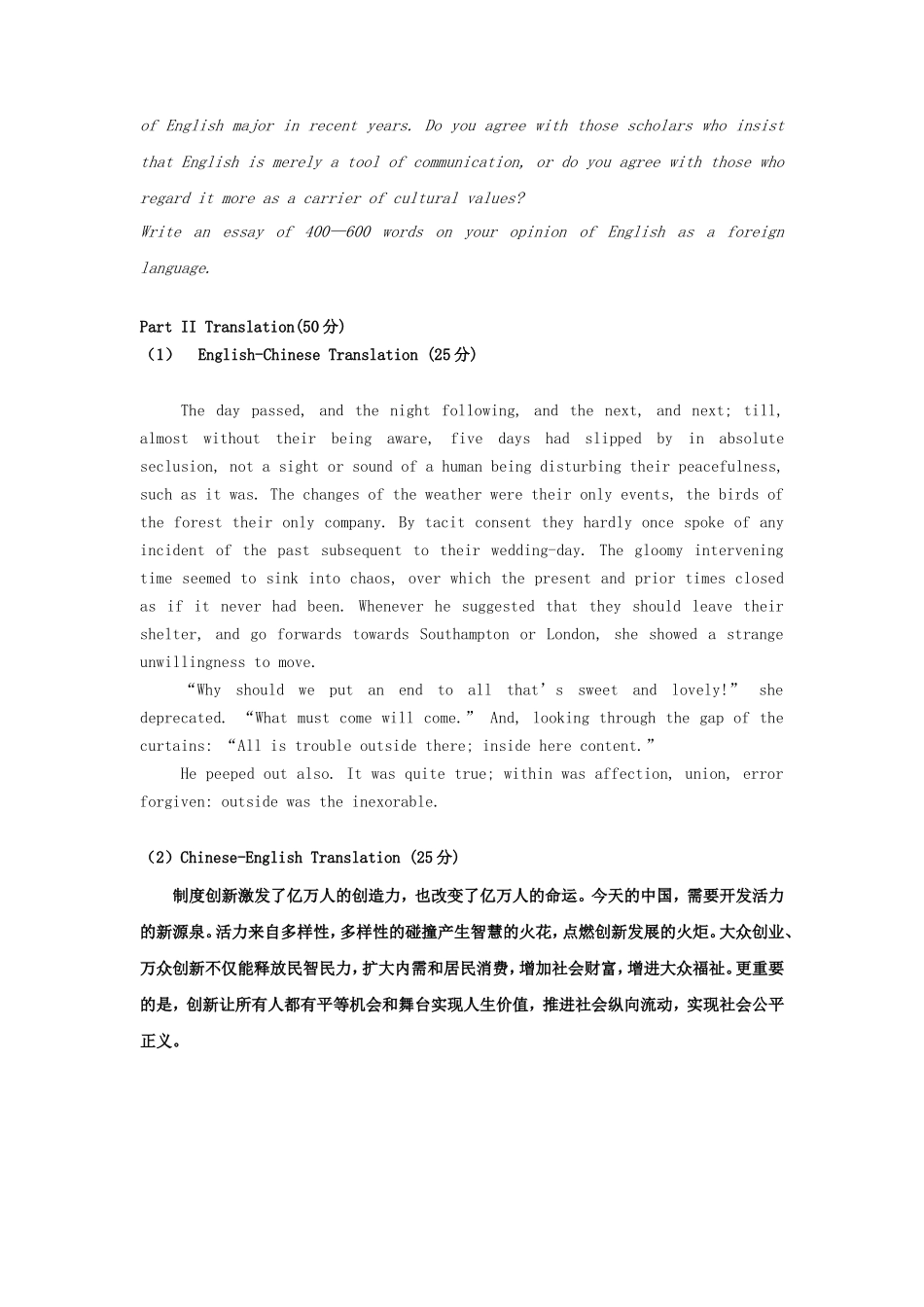2020 年广东财经大学英语写作与翻译考研真题考试年度:2020 年 考试科目代码及名称:804- 英语写作与翻译 ( 自命题 ) 适用专业:050201 英语语言文学 [友情提醒:请在考点提供的专用答题纸上答题,答在本卷或草稿纸上无效!]Part I Writing (100 分)(1)Summary Writing (1 题,共 40 分)Write a summary based on the following text. Your summary must be in a continuous paragraph and contain 120—150 words.The term “cyberspace”(网际空间) was coined by William Gibson, a science-fiction writer. He first used it in a short story in 1982, and expanded on it a couple of years later in a novel, “Neuromancer”, whose main character, Henry Dorsett Case, is a troubled computer hacker and drug addict. In the book Mr Gibson describes cyberspace as “a consensual hallucination experienced daily by billions of legitimate operators.” His literary creation turned out to be remarkably prescient. Cyberspace has become a popular term, symbolic of the computing devices, networks, wireless links and other infrastructure that bring the internet to billions of people around the world. The myriad connections forged by these technologies have brought tremendous benefits to everyone who uses the web to tap into humanity’s collective store of knowledge every day. But there is a darker side to this extraordinary invention. Data breaches are becoming ever bigger and more common. Last year over 800m records were lost, mainly through such attacks. Among the most prominent recent victims has been Target, whose chief executive, Gregg Steinhafel, stood down from his job in May, a few months after the giant American retailer revealed that online intruders had stolen millions of digital records about its customers, including credit- and debit-card details. Other well-known firms such as Adobe, a tech company, and eBay, an online marketplace, have also been hit. The potential damage, though, extends well beyond such commercial incursions. America’s president, Barack Obama, said in a White House press release earlier this year that cyber-threats “pose one of the gravest national-security dangers” the country is facing. Securing cyberspace is hard because the architecture of the internet was designed to promote connectivity, not security. Its founders focused on getting it to work and did not worry much about threats because the network was affiliated with America’s military. As hackers turned up, layers of security, from antivirus programs to firewalls, were added to try to keep them at bay. Gartner, a research firm, reckons that last year organizations around the globe spent $67 billion on information security. But the task is becoming harder. Cyber-security, which involves protecting both data and people, is facing multiple threats, notably cybercrime and online industrial espionage, both of which are growing rapidly. A recent estimate by the Centre for Strategic and International Studies (CSIS) puts...


